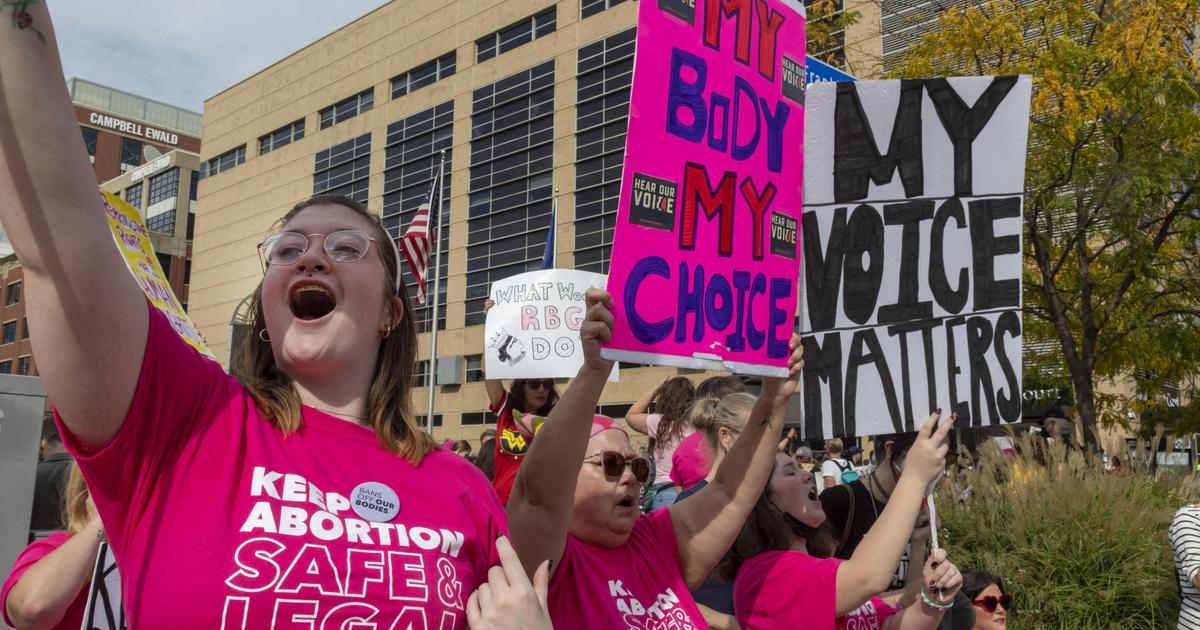Frau Dreyer saw no other way out.
She ran a bakery with her husband and cultivated several small vineyards to support the family, and three small children had to be supervised.
Frau Dreyer's kidney disease had worsened - and now she was pregnant a fourth time.
The pregnancy threatened to endanger her health;
she was afraid of not being able to look after the children and of not being able to fulfill her duties in the bakery, shop, in the vineyard and in the household.
Else Kienle wrote in 1932 in her book “Women.
From a doctor's diary «.
Enlarge image
Help for desperate women: The doctor Else Kienle helped women with abortion and was arrested for it.
Photo: Austrian Archives (S) / IMAGNO / picture alliance
Kienle tells numerous cases: women whose pregnancy exposed them to health risks, precarious living conditions or social abuse as the mother of an illegitimate child. Who came to Kienle's practice in their distress. The doctor performed abortions on some of them. She had to send others away because there were no legal reasons for abandoning them. Kienle also wrote about these women: about the girl who hid her pregnancy from her parents, gave birth to her child in secret and gave it away. Months later, she again sought help from Kienle: She was physically and psychologically traumatized by the experience.
Because she was performing abortions in her practice, Else Kienle was arrested in February 1931 together with the doctor and author Friedrich Wolf.
Kienle's patient file was confiscated and the doctor was questioned about over 200 cases in weeks of pre-trial detention.
After mass protests, Kienle and Wolf were released at the end of March 1931.
Her arrest fell in the middle of one of the great debates about abortion paragraph 218, which by then had been law for almost 60 years: When the German Empire was founded in 1871, the ban on abortion was included in the German Empire's penal code.
"A pregnant woman who deliberately aborts her fruit or kills it in the womb is punished with imprisonment for up to five years,"
it says there.
The women's movement did not speak with one voice
It is true that the abortion had already been punished with prison in countries like Prussia.
But with the entry into force of the Reich Penal Code on January 1, 1872, the abortion ban applied to all German states.
Abortion was illegal from the time of conception.
Doctors or helpers who did it for a fee had to reckon with up to ten years in prison.
Anyone who aborted a pregnant woman's child without her knowledge or will was also liable to prosecution.
If the woman died, she could even face life imprisonment.
The women's movement, while opposed to the law, never spoke with one voice on the issue. In a pamphlet published under a pseudonym in 1904, Countess Gertrud Bülow von Dennewitz criticized the state compulsory birth:
“The threat of punishment in Section 218 that a woman should have a germinating womb to bear and bring into the world under all circumstances is an unworthy encroachment in the most intimate private affair of a woman. "
The lawyer Marie Raschke disagreed and considered an abortion to be punishable.
Her colleague Camilla Jellinek pleaded in an expert opinion for the legal commission of the Federation of German Women's Associations (BDF) for the deletion of the paragraph, but was overruled at the general assembly of the association in 1908 because there was fear of moral abuse if abortion should only remain unpunished after rape.
Sex reformers like Helene Stöcker, who founded the Bund für Mutterschutz in 1905, supported the right to abortion.
In addition to self-determination, arguments relating to racial hygiene were also cited.
"Class Clause" 218
Soon after its introduction, Paragraph 218 was considered a "class paragraph."
“What was meant by this was that poor women and proletarians in particular were affected by the abortion ban.
Bourgeois women had ... (both) better access to contraceptives and abortions, «writes historian Kerstin Wolff from the archive of the German women's movement.
When Alfred Bernstein and Julius Moses, doctors of the labor movement, therefore called for a birth strike in 1913, the Social Democrats also discussed it, but ultimately refused to support the demand - against the resistance of most of the women in their ranks, with the exception of Clara Zetkin.
Enlarge image
A clear message: graphic designer Käthe Kollwitz turned against Paragraph 218 with a protest poster in 1924.
Photo: © Fine Art Images / Heritage Images / picture alliance
In the distress after the First World War and during the great inflation, many families lived in fear of having additional children.
But after the introduction of women's suffrage in 1918 and at the beginning of the twenties, an image of women was established, which also included a new sexual freedom.
Calls for the deletion of the paragraph or a period of impunity during the first three months of pregnancy were raised.
"Down with the abortion clauses," proclaimed a poster by the graphic artist Käthe Kollwitz in 1924. In his play "Cyankali", the doctor and author Friedrich Wolf brought the class differences and the misery of destitute pregnant women to the public in 1929.
As early as 1930: "I had an abortion"
The Reichstag of the Weimar Republic dealt with Paragraph 218 six times between 1920 and 1926. And in 1926 there was only a "minimal consensus that provided for the unrestricted retention of the abortion ban and merely a reduction in punishment and a downgrading from crime to offense," writes lawyer Dirk von Gehren. In protest, women and doctors revealed in a self-accusation campaign organized by Berlin gynecologist Heinrich Dehmel in 1930: "I had an abortion" and "I helped a woman".
But when the National Socialists came to power, all hopes of a relaxation of the abortion ban vanished. The Nazis made large numbers of children a patriotic duty and punished abortions from 1943 with the death penalty - because of "impairment of the vitality of the people". On the other hand, the "Law for the Prevention of Hereditary Diseased Offspring" legalized the forced sterilization of people with disabilities or diseases such as schizophrenia, followed by abortions and "euthanasia" murders. Forced laborers from the east were also forced to have abortions.
The end of the Second World War and mass rape led to the temporary repeal of the abortion clause in the Soviet occupation zone.
Shortly after its founding, the GDR implemented a radical reversal in 1950 with the "Law on Mother and Child Protection and Women's Rights": Abortions were only allowed if the pregnancy endangered the life or health of the woman or if one of the parents had a serious hereditary disease .
Pregnant women had to obtain permission for an abortion from a commission.
Legal abortion in the GDR
Because displeasure with this regulation increased and other Eastern Bloc countries handled it more liberally, Inge Lange, as chairwoman of the women's commission in the GDR Politburo, was able to enforce the legalization of abortion. From 1972, according to Section 1 of the »Law on the Interruption of Pregnancy«:
»To determine the number, the time and the chronological order of births, in addition to the existing contraception options, the woman is given the right to request the interruption of a pregnancy in to decide on their own responsibility. «
Women could have abortions free of charge in the first twelve weeks of pregnancy without giving any reason.
The Federal Republic meanwhile continued the ideal of the housewife and mother.
It was not until 1953 that the death penalty for abortion introduced by the National Socialists was lifted; from 1969, as in the Weimar Republic, the abortion was only considered an offense, punishable by small prison sentences or fines.
The campaign »We have aborted« organized by Alice Schwarzer in the »Stern« sparked a new social debate in 1971.
Groups of "Aktion 218" asked Justice Minister Gerhard Jahn to delete the paragraph.
Meanwhile, the German bishops supported the papal encyclical "Humanae vitae", according to which the state must absolutely protect unborn life.
Fine for "promoting abortion"
The Bundestag did not agree on a time limit until 1974: abortions with the consent of the doctor should remain unpunished until the twelfth week of pregnancy. The solution, which was narrowly achieved in a ballot, was overturned by the Federal Constitutional Court as unconstitutional because it violated the right to life enshrined in the Basic Law. Two years later, the indication regulation was considered a compromise, which allowed abortion in the event of danger or harm to the woman, rape and social emergency.
After reunification, the liberal regulation of the GDR was rejected. Today, abortion due to medical risks or after rape is permitted and is free of punishment. An abortion as a self-determined decision of the woman can be carried out in the first twelve weeks and after consulting a doctor. However, it is still considered unlawful, even if it remains unpunished.
Doctors continue to be targeted by the judiciary.
Because she had informed about abortions on her homepage, the Giessen doctor Kristina Hänel was sentenced to a fine in 2017 for violating Paragraph 219a, the so-called ban on advertising for abortions.
After a revision, a second conviction and the rejection of a new appeal, Hänel filed a constitutional complaint against Section 219a in January 2021.
The new federal government has announced that it will delete section 219a from the penal code this year.
But paragraph 218 - it's still there.















